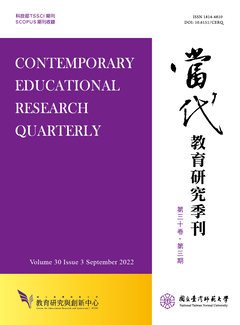

Although there is heated debate in higher education concerning what students should experience in university, how the curriculum should be organized, and the competencies students should be equipped with upon graduation, there is little serious effort toward answering these questions. Since a curriculum reflects the mission, meaning, function, and value of a university, quality assurance in higher education requires that colleges and universities periodically review the curriculum and make changes if necessary. The purpose of this paper was to explore the principles and strategies used in reconstructing a college curriculum. Twenty-two departments and graduate institutes voluntarily participated in a university-wide identification of the professional competencies students should be equipped with upon graduation. The authors first explored the relationship between constructing students’ professional competencies and the dynamic process of curriculum development. Then, the authors discussed the imperative considerations in the construction of students’ professional competencies. In the discussion, guiding principles and illustrative examples are provided for the constructive thinking of a “professional competency-oriented” college curriculum design. Finally, based on the issues raised in the process of constructing students’ professional competencies, the authors reflect critically on the challenges confronted in the reconstruction of a college curriculum. It is hoped that through engaging in critical reflection, this paper can provide useful recommendations for curriculum deliberation in higher education.

This work is licensed under a Creative Commons Attribution-NonCommercial 3.0 Taiwan License.
Center for Educational Research and Innovation, National Tawain Normal University
162, Ho-Ping East Rd, Sec. 1, Taipei, Taiwan | Tel:+886-2-7749-3670 | E-mail: cerecerq@gmail.com
CERI | NTNU | E-mail Alerts | Open Journal System
© 2014 CERI-NTNU
